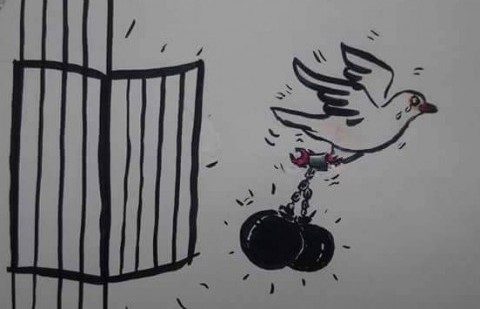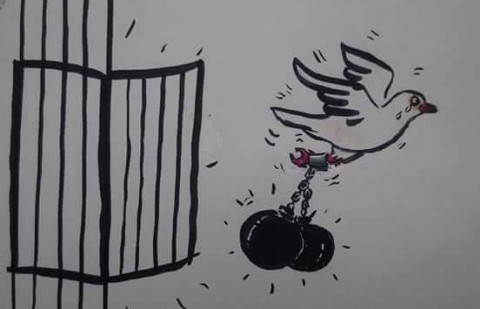
Today 14 Thai students arrested for peacefully protesting against the country’s ruling military junta on 26 June were released from jail.
Although the Bangkok Military Court ruled against further detention on 7 July, the case against the students, who were charged with sedition and breaching an order against public gatherings, still stands. This means they still face the prospect of seven years in jail.
Now out of prison, the students have said that they will continue to use peaceful means to demand democracy.
Thailand’s ruling junta came under sustained pressure to drop the case against the 14 students after the case sparked international condemnation.
Human rights groups slammed the jailing, labelling it as an escalation in the ruling junta’s repression. Last week both the EU and UN both called on the junta to drop the charges and free the activists.
Joining the global calls to free the 14, were scholars, writers, and citizens from around the world.
The campaign, organised under the ad hoc name of International Solidarity for Thai Students and Teachers, saw over sixty people calling for the immediate release and dropping of all charges against Chatupat Boonyapatraksa, Apiwat Suntararak, Payu Boonsopon, Panupong Srithananuwat, Suvicha Tipangkorn, Supachai Pukrongploy, Wasant Satesit, Rattapol Supasupon, Rangsiman Rome, Songtham Kaewpanpruk, Chonthicha Jaengraew, Rattapol Supasophon, Apisit Sapnapapha, Pakorn Areekul, and Pornchai Yuanyee.
The scholars, writers, and citizens wrote individual letters, took photographs, wrote poems, shared poems by others, drew pictures, and sent short messages of support. The messages included the expression of solidarity, the linking of the Thai struggle for democracy to other struggles globally, and the enduring power of liberty, dignity, and freedom.
Following is a selection of the messages. You can see all the messages over at Prachatai’s English website.
Signs of solidarity
Many people sent the students letters. For example, Ariel Dorfman, noted thinker and writer who was forced to flee Chile when General Pinochet launched a coup against democratically-elected Salvador Allende in 1973, came to power, called on the government to cease its persecution of the students:
As someone who has himself suffered repression in Latin America and witnessed it around the world, I urge the government to stop persecuting the fourteen students who want nothing more than the human rights and democracy which are part of the heritage of the whole Thai people.
I write not only as a human rights activist, a distinguished professor at Duke University and a writer, but as someone who has established in the past, through my work, a relationship with Thailand. My play, Death and the Maiden, has been staged there – and an award winning film, Prisoners in Time, starring John Hurt, was filmed there, after I spent a compelling week in Thailand, interviewing people and scouting locations, discovering the deep gentleness and profound wisdom of so many citizens who are now subjected to the worst sort of harassment. If teachers and students are not free to express themselves, to think and act upon their thoughts, the future for Thailand will be bleak.
Other scholars, writers, and citizens wrote poems. Michelle Tan, from the Faculty of Political Science at Thammasat University, wrote:
What will it take to prove to you, who rule at the barrel of a gun, that we…
are not slaves of Thaksin
are not living in a “beautiful world’
are not slaves of Caucasian white-skinned foreigners
are not evil capitalists
but we
are fighting for a stable, peaceful future
which requires the rule of law, not the rule of any individual
are trying to allow for free expression
which will help prevent the pent-up frustration that leads to radicalisation and violence
are willing to listen to you and everyone in this country
are advocating a stable system of checks and balances
are fighting against corruption, regardless of who commits it
are all human???
If there is no “third side”, no neutral space free of double standards, then there is no hope.
Others sent in works of art, like Tessa Morris-Suzuki, a Fukuoka Peace Prize winner and professor at the Australian National University.
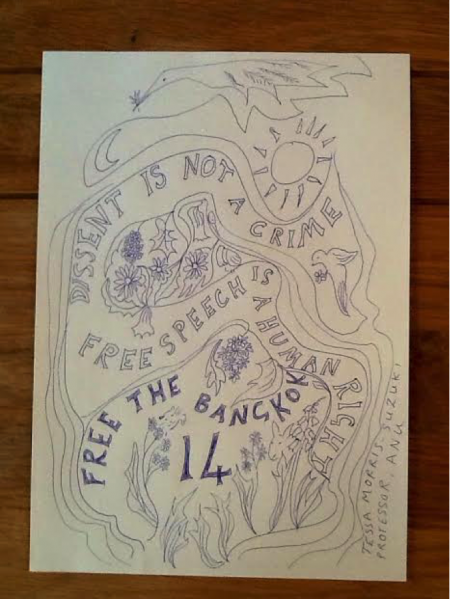
May Adadol Ingawanij, teacher, University of Westminster, offered the message that, “You’ll never walk alone,” as well as this short clip.
Chris Baker asked, “Who breaks a butterfly upon a wheel?”
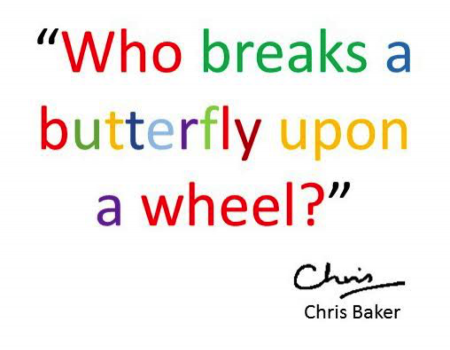
A friend from Hong Kong sent in a visual message of support:
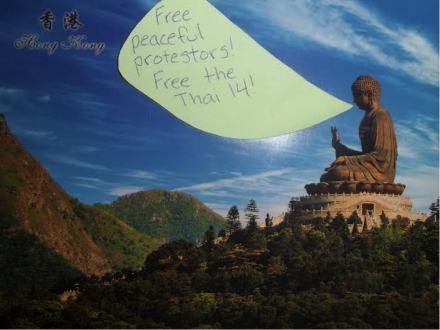
Tyrell Haberkorn from the Australian National University shared part of Adrienne Rich’s poem, Integrity:
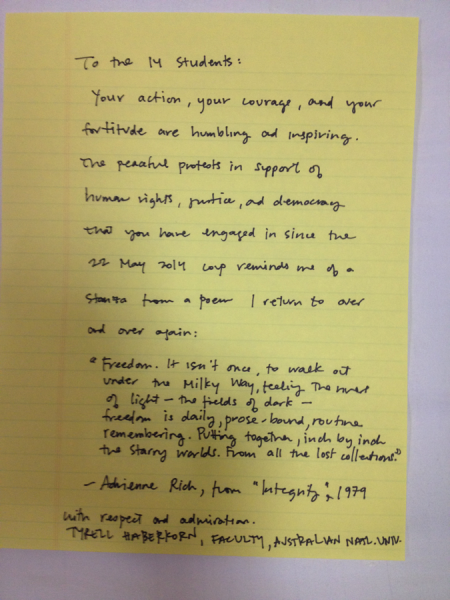
Aim Sinpeng from the University of Sydney summed it all up with this clear and sharp message:
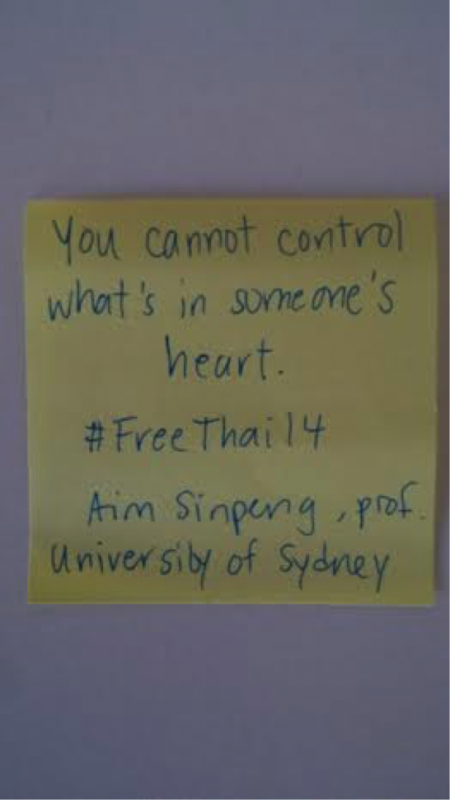
See all the messages over at Prachatai’s English website.
 Facebook
Facebook  Twitter
Twitter  Soundcloud
Soundcloud  Youtube
Youtube  Rss
Rss 